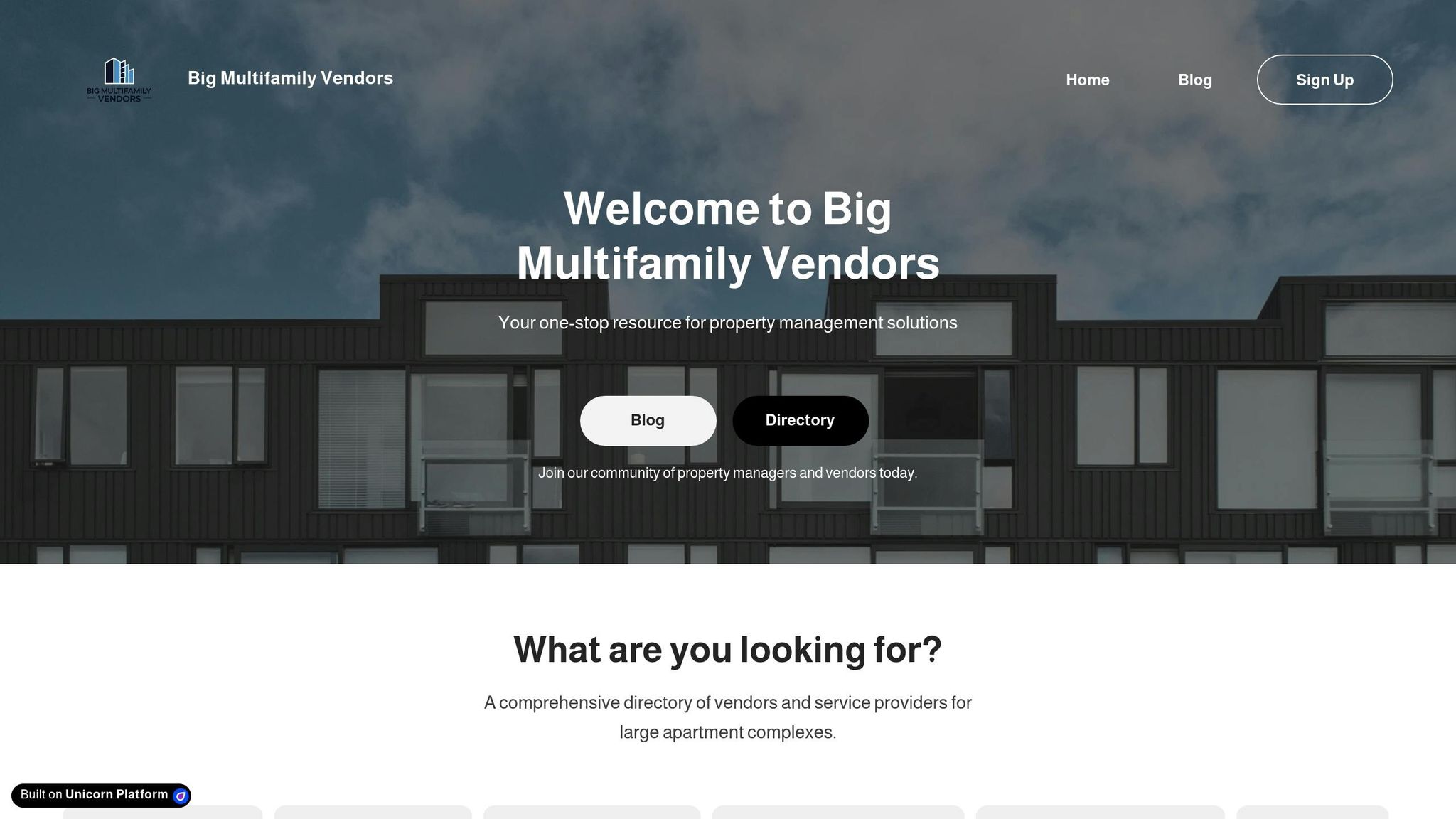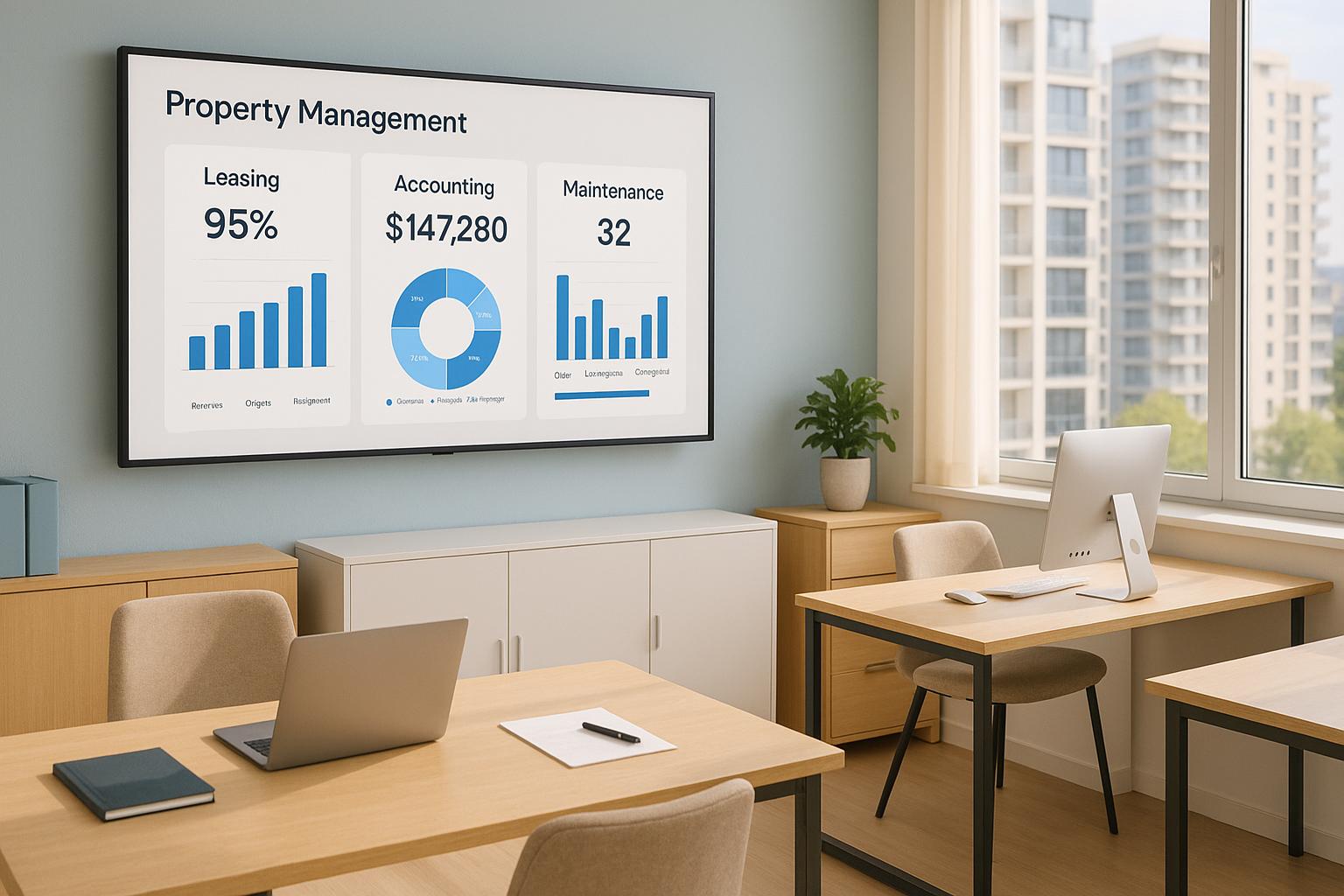Valet trash services are no longer optional - they’re essential. They boost tenant satisfaction, reduce turnover, and generate additional revenue. For example, a 200-unit property can net $4,000 per month by charging residents $30 while paying $10 per unit for the service.
Here’s what you need to know:
- Pricing models: Common options include flat fees, volume-based, tiered, or customized pricing. Costs range from $8–$15 per unit monthly for property managers, while residents typically pay $25–$50 per month.
- Key contract elements: Focus on payment terms, cancellation clauses, service scope (pickup schedules, waste types), and renewal terms to avoid surprises.
- Compliance: Stay updated on local and federal regulations (e.g., recycling rules, hazardous waste disposal). Non-compliance can result in steep fines, such as up to $93,058 per day for federal violations.
- Vendor selection: Prioritize reputation, licensing, service quality, sustainability, and customer support. Avoid choosing solely based on price.
- Cost management: Regularly review invoices, negotiate terms, and compare market rates to prevent overpaying.
Pro Tip: Use tools like vendor directories and compliance resources from platforms like Big Multifamily Vendors to streamline vendor selection and stay ahead of industry changes.
Valet Trash Sample Contract Formats: Which Works Best?
Pricing Models and Cost Considerations
Getting a clear picture of how valet trash services are priced can help property managers budget effectively while keeping tenants happy. Since different properties have unique needs, pricing models are often tailored to fit those specifics.
Common Pricing Structures in Valet Trash Contracts
Valet trash services usually charge on a per-unit, per-month basis. Property managers often pay between $8 and $15 per unit monthly, though some providers estimate costs closer to $8 to $12 per unit, depending on how often trash is collected [2]. Meanwhile, residents typically pay a separate fee for the service, ranging from $25 to $50 per month [1].
Let’s break it down with an example: A property with 100 units contracts valet trash services at $12 per unit per month. The property manager pays $1,200 monthly, while residents are charged $25 each per month, bringing in $2,500 in revenue. This setup leaves the property manager with a profit of about $1,300 [2].
Valet trash services typically use one of four pricing models:
- Flat-Fee Model: A fixed rate per unit, regardless of how often trash is picked up. This is great for predictable budgeting but might not work for properties with inconsistent trash output [1].
- Volume-Based Pricing: Costs vary based on the actual amount of trash collected. This can save money for properties with fluctuating waste levels, though monthly bills may not be consistent [1].
- Tiered Pricing: Rates depend on pickup frequency or service levels. This model is flexible and allows customization based on specific needs and budgets [1].
- Customized Pricing: Tailored plans that consider factors like property size, unit count, layout challenges, and unique waste management needs. This ensures managers only pay for what they require [1].
While these pricing models establish the foundation, other factors can further influence the total cost.
Factors That Influence Service Costs
Several elements impact the final cost of valet trash services beyond the base pricing. One of the biggest factors is pickup frequency - more frequent collections naturally lead to higher costs.
The size of the community also plays a role. Larger properties often benefit from better per-unit rates thanks to economies of scale. However, geographic location can affect costs, as labor rates and disposal fees vary by region.
Contract terms are another consideration. Longer agreements often come with discounted rates, but they may limit flexibility if service quality declines. Additionally, properties with complex layouts - like those with elevators, gated sections, or spread-out buildings - may face higher per-unit charges due to the extra time and effort required for collections [1].
Balancing Cost with Service Quality
Striking the right balance between cost and service quality is key. The cheapest option isn’t always the best value. Leading providers emphasize that a well-thought-out pricing strategy not only keeps costs manageable but also ensures efficient service and satisfied tenants [1].
Property managers should regularly review valet trash invoices and negotiate contract terms to avoid overpaying. Annual rate increases are common, so staying on top of market trends and requesting detailed pricing breakdowns is essential [5].
To keep costs under control without sacrificing quality, managers should:
- Research local market rates.
- Understand their community’s specific needs, such as unit count, pickup frequency, and recycling requirements.
- Request transparent pricing that includes any extra fees.
Compliance and Regulatory Considerations
Complying with waste management regulations is more than just avoiding fines - it’s about ensuring smooth operations and protecting your property. Property managers must navigate a maze of federal, state, and local rules, which can vary widely depending on the region. These regulations directly influence contract terms and vendor selection, as explored in later sections.
Meeting Local and Federal Regulations
Waste management rules differ significantly across regions, making it essential for property managers to understand their specific local requirements [6]. These regulations often focus on key areas that directly impact valet trash operations.
For instance, regulations typically mandate waste segregation into categories like recyclables, organic waste, and hazardous materials. They may also dictate collection frequency to minimize health risks [6]. In some locations, additional rules apply to specific items, such as electronic waste and batteries, requiring specialized disposal methods.
Equipment standards are another area of focus. Take North Carolina as an example: the state adopted Section 304.4 of the 2018 NC Fire Code in 2019, introducing fire-retardant requirements for valet trash receptacles. Compliance is monitored by NC Fire Marshals, and violations can result in fines for residential properties [7].
On the federal level, penalties for non-compliance can be steep. For example, violations of the Resource Conservation and Recovery Act (RCRA) can lead to fines of up to $93,058 per day starting January 8, 2025 [11]. Other major EPA programs impose similarly high penalties:
| EPA Program | Daily Penalty (as of 1/8/25) |
|---|---|
| Clean Air Act (CAA) | $124,426 |
| Resource Conservation and Recovery Act (RCRA) | $93,058 |
| Clean Water Act (CWA) | $68,445 |
| Superfund and Right-to-Know (CERCLA/EPCRA) | $71,545 |
A real-world example: In 2022, Walmart paid $7.5 million to settle a California lawsuit over the improper disposal of hazardous waste [9].
Resident and Property Management Responsibilities
Compliance isn’t just about avoiding fines - it requires active management and collaboration with tenants.
Property managers bear significant responsibility. They need to ensure vendors are properly licensed and certified [9]. Regular audits can help spot potential issues before they escalate into violations [8]. Staff training on safety, legal requirements, and tenant responsibilities is also crucial [8]. Keeping detailed records of all waste management practices can make a big difference during inspections [10].
Tenants play a role too. Residents need clear instructions on proper waste disposal, including what can and cannot go into valet trash bins. Some properties even implement penalty systems for tenants who repeatedly violate disposal rules [7].
A well-thought-out waste management plan can simplify these responsibilities. Such a plan should include recycling initiatives, procedures for hazardous waste disposal, and staff training programs. Regular updates to the plan ensure it stays aligned with evolving regulations [10].
Staying informed is critical. Property managers can subscribe to industry newsletters, join professional associations, and maintain open communication with regulatory agencies to keep up with changing requirements [10]. Partnering with professional trash services is another effective way to ensure consistent compliance [6]. Together, these efforts not only meet regulatory demands but also enhance the overall quality of waste management operations.
sbb-itb-58157f8
Evaluating and Selecting the Right Vendor
When it comes to valet trash services, finding the right vendor goes beyond just comparing price tags. A thorough evaluation process ensures not only reliable service but also long-term savings and compliance with regulations. Property managers should consider a variety of factors to choose a vendor that aligns with their property's needs and delivers consistent, high-quality service.
Key Criteria for Vendor Selection
- Reputation and Reliability: A vendor's track record speaks volumes. Look for providers with a strong history in the multifamily industry and request references from similar properties to gauge their reliability [12].
- Licensing and Insurance Coverage: Proper certification and insurance are non-negotiable. These protect your property from liability in case of accidents or injuries during waste collection [14].
- Service Consistency: Dependable vendors have plans in place to handle disruptions like holidays or bad weather. They also maintain regular pickup schedules, helping residents manage waste disposal without hassle [13].
- Staff Quality and Training: The vendor's staff should be well-trained in waste handling and customer service. Professionalism, both in appearance and interactions with residents, is a must [14].
- Sustainability Practices: Choose a provider that prioritizes eco-friendly practices, such as recycling and other sustainable waste management methods [12][13].
- Customer Service Responsiveness: Strong customer service is critical. Look for a vendor that communicates clearly, responds promptly to inquiries, and keeps residents informed about any service changes [12][13].
- Customized Service Offerings: Flexibility is key. Select a vendor that can tailor their services to your property's unique needs, whether that means daily pickups or weekend-only options [12].
A reliable vendor not only ensures compliance with local regulations but also improves the overall efficiency of property management.
Best Practices for Reviewing Contracts
- Define Clear Service Level Agreements (SLAs) and Ensure Billing Transparency: SLAs should outline the vendor's responsibilities, including service quality, response times for complaints, and penalties for unresolved issues. Request a detailed cost breakdown to avoid hidden fees or unexpected charges [4][12][15][16].
"A well-designed contract protects the city, protects residents and presents clarity for the contractor."
– Shahrzad Habibi, ITPI's research and policy director [15]
- Include Performance Accountability Measures: Specify penalties for lapses in performance to hold the vendor accountable [15].
- Establish Dispute Resolution Procedures: Set up clear steps for resolving conflicts, such as mediation, before escalating to legal actions [16].
- Negotiate Flexible Contract Terms: Protect your property by negotiating terms like shorter contract durations and limits on fee increases. It's also wise to gather quotes from multiple vendors, factoring in property size, contract length, and any bundled service options [12][16].
- Require Comprehensive Documentation: Ensure the vendor provides thorough documentation of their waste disposal processes and compliance with local regulations. This can be crucial during inspections and for maintaining regulatory adherence [16].
Before signing any agreement, have the contract reviewed by legal experts to spot potential risks. Conducting in-depth market research and applying these best practices will help you select a vendor that meets your property's needs and ensures smooth, efficient service [16].
Using Big Multifamily Vendors for Insights and Resources

Property managers today face mounting challenges, from rising operational costs to stricter regulations. These pressures make it crucial to have dependable resources for navigating complex tasks like managing valet trash contracts. By tapping into these resources, property managers can simplify contract oversight and ensure compliance, reinforcing the strategies we've touched on earlier.
"The economics of housing are tight. Maintaining quality communities and homes is expensive, as is responsive service. Wages, materials, electricity, gas, and water costs are all rising faster than rent rates in many places. Insurance costs are escalating rapidly and there is no income offset for property owners."
- Melissa Deen, president of CloudTen Residential [17]
Big Multifamily Vendors addresses these concerns head-on, offering tools and resources tailored to the unique needs of property managers.
How Big Multifamily Vendors' Tools Can Help
Big Multifamily Vendors supports property managers at every stage of contract management. Their platform simplifies the process of securing competitive rates by providing access to a vendor directory that features pre-vetted valet trash providers. This eliminates the need for exhaustive independent research and saves valuable time.
Another key resource is the platform's content archive, a private library filled with guides on topics like contract negotiation strategies and pricing standards for valet trash services. This archive proves especially helpful when property managers need to evaluate service level agreements or benchmark pricing.
For properties with multiple locations, Big Multifamily Vendors offers solutions to consolidate waste management programs. By leveraging established relationships with nationwide service providers, the platform helps streamline operations, often leading to better rates and consistent service across an entire portfolio [18]. Additionally, their tools support complex contract negotiations and provide expert advice to mitigate risks during waste management updates.
The platform also fosters a sense of community by connecting property managers with peers who share similar challenges. These connections allow for the exchange of real-world insights on vendor performance and effective contract terms, offering practical advice that can be applied directly to day-to-day operations.
Keeping Up with Industry Trends and Updates
The waste management landscape is constantly changing. Residents are demanding more sustainable options, regulations are tightening, and costs continue to rise [19]. Staying informed about these shifts is essential for property managers to remain compliant and proactive.
Big Multifamily Vendors' Multifamily Hub blog is a key resource for staying ahead of emerging trends. The blog covers topics like composting programs, e-waste collection, and food scrap drop-offs, as well as advancements in waste management technologies. These include tools like compactor monitors, AI-powered waste sorting systems, fill-level sensors, and smart collection scheduling [19].
To keep property managers updated on regulatory changes, the platform offers email newsletters that highlight new policies impacting waste management. For example, some states are focusing on reducing landfill methane emissions and introducing Extended Producer Responsibility (EPR) laws for packaging [20]. These updates help property managers anticipate changes and avoid compliance issues.
Finally, the platform's compliance updates and best practice guides ensure property managers stay ahead of industry shifts toward reducing waste at its source. This proactive approach helps managers navigate the evolving demands of waste management with confidence [19].
Conclusion: Key Takeaways for Property Managers
When it comes to pricing models, compliance requirements, and vendor selection, the key to a successful trash collection contract lies in balancing cost, quality, and adherence to regulations. These elements work together to create a foundation for long-term operational success.
Start with a solid contract structure. Contracts should be concise, allow for regular performance reviews, and avoid auto-renewal clauses that lock you into rigid terms. Include clear remedies for missed or poor service. Andrea Suarez from Waste Consultants Inc. puts it well:
"A good contract is one that has terms that are fair to the client as well as the vendor" [22].
Transparent pricing is equally critical. Residents generally pay $25–$50 per month, so it's important to scrutinize all fees carefully [1]. Negotiate limits on price increases and ensure base rates remain unchanged for the first year [3]. Be vigilant about distinguishing legitimate ancillary fees from unnecessary markups [21].
Compliance cannot be overlooked. Require vendors to provide proof of valid permits, licenses, and compliance with waste disposal laws. Check their compliance history before signing anything [24].
Vendor selection demands thorough research. Look beyond the lowest bid - hidden costs often lurk there. Read reviews, ask for references, and visit vendor sites to assess their operations. A strong track record is a better predictor of reliable service [23].
By combining well-structured contracts, clear pricing terms, and diligent vendor evaluation, you’ll set your property up to handle industry changes effectively. Tools and resources from companies like Big Multifamily Vendors can further support your efforts.
Taking the time to get these contracts right offers real benefits: fewer operational headaches, predictable costs, and happy residents who appreciate reliable waste management services. It's an investment in the stability and reputation of your property.
FAQs
What steps can property managers take to comply with waste management regulations and avoid fines?
Property managers can ensure compliance with waste management regulations by adhering to the federal Resource Conservation and Recovery Act (RCRA), which outlines nationwide standards for managing both solid and hazardous waste. Following EPA guidelines for waste transportation, labeling, and disposal is another key step in staying within the law.
Beyond federal rules, state and local regulations often include specific requirements for waste storage, recycling practices, and reporting. Regularly reviewing these rules is crucial to avoid potential penalties. To stay on top of compliance, managers can conduct periodic waste audits, schedule inspections, and provide staff with proper training. These measures not only help prevent fines but also promote safer and more efficient waste management practices.
What should property managers consider when choosing a pricing model for valet trash services?
Valet trash services generally operate under two pricing models: flat-rate pricing and per-unit pricing, each with its own set of advantages and drawbacks. Flat-rate pricing, typically ranging from $25 to $50 per month per unit, makes billing straightforward and ensures residents know exactly what to expect. However, if the service isn’t heavily used, it can result in lost revenue. In contrast, per-unit pricing - usually between $8 and $15 per unit - adapts to actual usage, offering more flexibility, but it can lead to inconsistent revenue and less financial predictability.
When deciding on a pricing approach, property managers should weigh key factors like property size, resident preferences, and operational costs. Striking the right balance between affordability for residents and meeting financial objectives is crucial. Additionally, aligning the service with local market trends can help ensure both resident satisfaction and the property's financial success.
What should property managers look for in a valet trash service provider to ensure dependable and compliant waste collection?
When picking a valet trash service provider, property managers should prioritize reliability, adherence to regulations, and professionalism. Start by checking for vendors with a solid history of showing up on time and receiving positive feedback from clients - these are strong signs of dependable service and satisfied customers.
Make sure the vendor follows industry standards and meets local waste management regulations. This helps avoid any potential legal or operational headaches. Also, take a close look at their pricing. It’s important that their rates fit within your budget and come with clear, no-surprise terms. By keeping these factors in mind, you’re more likely to find a trustworthy and efficient service provider.


